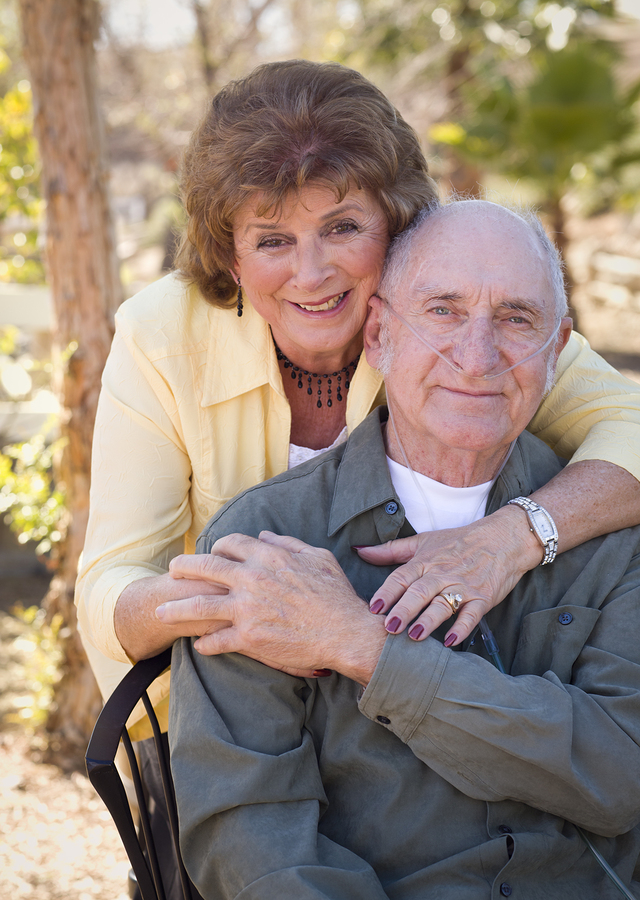
Diagnosed with Cancer? Your two greatest challenges are understanding cancer and understanding possible side effects from chemo and radiation. Knowledge is Power!
Learn about conventional, complementary, and integrative therapies.
Dealing with treatment side effects? Learn about evidence-based therapies to alleviate your symptoms.
Click the orange button to the right to learn more.
Holistic Care in Cancer Treatment for Seniors

Understanding the importance of holistic care in cancer treatment for seniors undergoing cancer treatment is key in healthcare. Seniors facing cancer often rely on in-home care services for comfort and assistance. This approach doesn’t just focus on medical needs; it also considers their emotional, social, and spiritual well-being. Let’s explore how holistic care supports seniors through their cancer journey, emphasizing how in-home care services improve their overall quality of life.
Exploring Holistic and Integrative Cancer Care:
When we talk about holistic care, we’re really talking about integrative care. This approach blends conventional and complementary methods to address cancer by looking at the whole person—emotional, spiritual, social, and lifestyle factors like diet, exercise, sleep, and relationships. It’s all about building a partnership between the provider and patient and collaborating with different healthcare professionals. Here are some key points:
● Patient-Centered Approach: The focus is on what’s best for the patient.
● Consistent Care: It’s not just about one provider or organization; care is seamless across different providers.
● Local Care: Patients should get quality care close to home whenever possible.
● Shared Guidelines: Everyone follows the same protocols and guidelines for consistent care.
● Supportive Care Screening: Screening helps identify all the patient’s needs for a holistic approach to care.
Reducing Your Risk of Cancer: Lifestyle Tips
When it comes to preventing cancer, there’a lot of advice out there, and sometimes it can be confusing because one study might say one thing while another says something else. But one thing that’s pretty clear is that the choices we make in our daily lives can affect our chances of getting cancer.
Here are some simple tips to help lower your risk:
Say No to Tobacco:
Smoking is a big one. It’s been linked to all sorts of cancers, like lung, mouth, throat, and more. Even being around secondhand smoke can up your chances of getting lung cancer. But it’s not just smoking cigarettes that’s harmful—chewing tobacco can also lead to mouth, throat, and pancreatic cancer. So, if you’re using tobacco, quitting or staying away from it altogether can really make a difference. If you need help quitting, there are products and support out there that can help you kick the habit.
Healthy Eating for Lower Cancer Risk
While there’s no magic bullet for preventing cancer, eating well can certainly help. Here’s what you can do:
● Load up on fruits and veggies, whole grains, and beans—they’re packed with nutrients.
● opt for lighter, leaner foods over heavy, calorie-packed options.
● Keep an eye on sugars and fats, especially from animal sources.
● Drink alcohol in moderation to reduce your risk of certain cancers.
● Cut back on processed meats, which can increase cancer risk according to the World Health Organization.
Stay Fit and Active:
Keeping a healthy weight can lower your risk of certain cancers like breast, prostate, lung, colon, and kidney. And staying active plays a big part too. Not only does it help with weight control, but it can also reduce your risk of breast and colon cancer all on its own.
You don’t need to run marathons to reap the benefits—any amount of physical activity is good for you. But for the best results, aim for at least 30 minutes of exercise most days of the week. Shoot for a total of 150 minutes of moderate aerobic activity or 75 minutes of vigorous activity each week. And remember, the more you move, the better!
Providing Personalized Support for Cancer Patients:
When it comes to living with and beyond cancer, addressing patients’ individual needs in a holistic and patient-centered way is crucial. This means going beyond just treating the physical effects of cancer treatment and considering the emotional, spiritual, and other needs too. Many cancer patients and survivors feel uncertain about what comes next in their journey, making holistic care increasingly important.
Despite the importance of holistic care, research shows that there’s a lack of evidence when it comes to services after treatment. Patients often feel like their psychological and supportive care needs aren’t being recognized or met. Additionally, many cancer survivors don’t receive survivorship care plans (SCPs), which are personalized documents summarizing their diagnosis, treatment, possible side effects, and available resources for support.
Conclusion:
Further research is essential to gain a deeper understanding of how to offer optimal care for cancer patients, encompassing the types of care needed, the most effective delivery methods, and the appropriate caregivers. This expanded knowledge base is vital for enhancing the quality of care and support provided to individuals navigating life with cancer. Moreover, such research can shed light on the role of in-home care services in delivering personalized and comprehensive care to cancer patients, contributing to improved outcomes and overall well-being.

